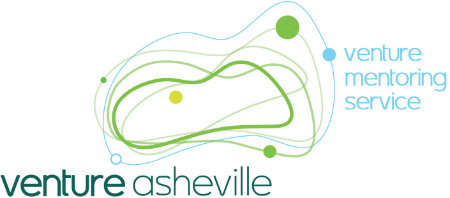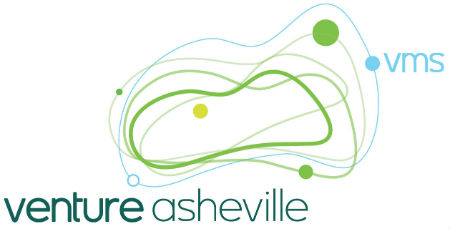Welcome to our series taking a Deep Dive into Venture Asheville. You can find all the posts in this series linked here:
How Venture Asheville Built a $150M Startup Ecosystem; A 7-Part Series
- Setting the Scene for a Small City Startup Hub
- Elevate, a mentorship-based incubator
- The MIT Venture Mentoring System
- Peer Facilitated Mentorship
- TheE13 and Experience Portfolios
- Engaging an Event-Driven Ecosystem
- Looking Beyond the $150M Impact
This post focuses on the Expert Mentorship provided by local volunteers. The incubator also facilitates Peer Facilitated Mentorship, discussed in the next post.
_____________________________________________________________
The Expert Mentors in Elevate come from local successful founders, retirees from a previous corporate life, and the occasional investor. Professional Service providers like Lawyers, CPAs, Marketing, PR, Software Developers often make good mentors for their deep subject matter expertise. However, we have to put guardrails around their participation to make sure they are really here for altruistic reasons, not lead generation. That’s the heart of our mentorship, altruism. And that plays into our social fabric as well.
We screen out almost all consultants and coaches. No shade, they just inevitably pull us into a conflict of interest (more on that below).

Over 120 organizations in 28 countries host a version of MIT’s Venture Mentoring Service. What is the VMS? In MIT’s own words:
The key to the MIT VMS Model lies with a unique Team Mentoring methodology; a strict code of ethics to assure objective, conflict-free and confidential advice; best practices for selecting, training and retaining a community of highly qualified and committed volunteer mentors; and formal operational processes.
Our experience has shown that the MIT VMS Model can be successfully replicated by a broad range of organizations, in different geographies and cultures, and in communities with different scales and entrepreneurial ecosystems.
Whether your goal is to accelerate venture growth, educate the entrepreneur, increase tech transfer and research commercialization, or create jobs in your community, we can help you establish a formal, sustainable and impactful mentoring program to support it.
The strict code of ethics is no joke. It’s the competitive advantage. By keeping all relationships free of potential conflicts of interest, we allow founders to be completely vulnerable and transparent with their mentors. In turn, the more open the founder is, the more helpful the mentors can be.
We find mentors through three channels, open application on our website, direct recruitment (likely through networking), but the best ones come from referrals by other mentors. Mentors are not compensated, ever, at all. They must be altruistic volunteers or self-interest gets in the way and conflicts come up. Mentors can’t come into the program looking for work. Just giving back should be enough, but all volunteers get worn out eventually, so our job is to keep the efforts rewarding and fun. That doesn’t’ mean you don’t shower them in praise, express gratitude, get them gifts and show endless appreciation – you absolutely do!
Expert Mentorship is the heart of the incubator. We screen and sort mentors by industry, experience, and availability. Some may be amazing knowledge bomb droppers, but only have 2 hours per month to dedicate to the program. Knowing their bandwidth, preferences and availability keeps mentors motivated and appreciated. Therefore, the key to running a successful VMS is to have a strong Operations Manager.
We closely watch team structure through a lens of balance: the balance of expertise, balance of demographics, and balance of backgrounds to meet the founder’s needs and goals. For us, it’s a lot of spreadsheets. Other programs are more sophisticated, using CRMs or similar tools. We have about 50 mentors and on average 20 founders in at a time. We don’t over process-ize or over-engineer solutions. Each program is different, this works for us.
Read on to see how we structure our version of MIT’s VMS: meeting cadence, mentor roles, what to do about conflicts, when to exit, and who our mentors are. Again, it is a lot of detail. You can skip ahead to Peer Facilitated Mentorship, or read on if you want to understand the nuances of Elevate’s Expert Mentorship.
_____________________________________________________________

The following is taken from the Elevate Onboarding Training Course
Expert Mentor Meeting Cadence
Your meetings will be once per month, for 90 minutes. In this time, you’ll likely cover 3 -4 topics. At your first meeting, you’ll generally orient your mentors to who you are, what your company does, and an overview of all the big issues you encounter. It would be a good use of time to prioritize all of the issues with your mentors and set milestones and timelines. For example, “I want to be in 50 new stores by the end of this year” is a good time-bound and measurable goal.
Throughout your meeting, some follow-up items will come up. In the above example, it might be “to create a lead list of 200 possible stores”, or “identify all potential retail chains in the southeast that could sell your product”. Within 24 hours after your meeting, you will send out notes and follow ups to your mentor team.
Mentor Roles
During your time in the Elevate program, you’ll have three kinds of mentors.
Mentors are on your team. They are objective volunteers who are smart and experienced. We recruit and screen the best people we can find. And they all volunteer their time in the hopes that they can help grow businesses here in Asheville, strengthening and diversifying the economy.
The Lead Mentor is the referee in the room. They watch the clock, make sure each agenda item is being addressed with regards to time management. They make sure each mentor gets enough air time to make their perspective heard. And importantly, they are the Conflict Vigilante, making sure the teams are free of conflict or confidentiality issues.
Specialist Mentors are likely not on your team. They are Skill Assassins. When you have a particular need or wish to connect with a subject matter expert, you can request to meet one of these specialists and you’ll have a one-off meeting with them. Everything from advertising to sales to HR to legal – almost every topic is represented in our network. The request can come from you or your mentors. Either way, let your mentors know when you want to bring in a Specialist Mentor.
To schedule a Specialist Mentor Meeting, email Venture Asheville staff. If you know the name of who you want to meet, include that. If you simply have a skill set you need help with, let us know and we’ll find someone great to meet with you.

Conflicts and Confidentiality
Nothing is more sacred to our program than confidentiality and being conflict free.
We require every mentor to sign an NDA. They cannot share the sensitive details of your meetings with anyone outside of our staff or your team.
Conflicts come up for all kinds of reasons: pre-existing commitments, history with other ventures, investments, etc. Conflicts aren’t a bad thing, but we want to avoid the potential for conflicts of interest. Elevate mentors are thoroughly trained on how to avoid conflicts, and how to handle them if they arise. If a potential conflict pops up, just let Venture Asheville staff know and we’ll make sure we all steer clear of it.
When to Exit
When you no longer receive value from your meetings, or feel like it’s time to execute and not be advised as much, or you’ve gotten funding and now have a board, those are all good times to graduate from the program. Just email Venture Asheville staff with your decision and we’ll coordinate a nice send off for you.
If you’re exiting because the company has failed (happens 1 in 3 times) let us know that too so we can send you off the right way and help you take the next steps in your professional journey.
Sometimes, companies just plateau for a while. This is a sign you should graduate from Elevate. Either you’ve crested this iteration of your growth curve or a pivot is required because the growth has yet to manifest. Both are fine, but are better served by our partner programs, not a long-term mentorship program like Elevate.
Who Are Our Mentors?
The Elevate program could not function without its mentors. These volunteers generously donate their time from a purely altruistic place – they expect no reward other than the satisfaction of supporting entrepreneurs on their journey. They have experience in the corporate and professional worlds; some of them have been founders and investors themselves.
One common thread that runs between all mentors, however, is their commitment to remaining conflict-free and discreet, treating everything as confidential.
To ensure our mentors are a good fit for the program, we do a significant amount of gatekeeping. This vetting process is in place to make sure Elevate mentors are not:
- Consultants or coaches
- People looking for a job
- People looking for a deal
- People who give bad advice
- Liars, bigots, misogynists, racists, anti-semites, etc…
__________________________________________________________________
The next section profiles the Peer Mentorship side of Elevate. While it is not what we are famous for, it’s the most popular part of the program.
How Venture Asheville Built a $150M Startup Ecosystem; A 7-Part Series
- Setting the Scene for a Small City Startup Hub
- Elevate, a mentorship-based incubator
- The MIT Venture Mentoring System
- Peer Facilitated Mentorship
- TheE13 and Experience Portfolios
- Engaging an Event-Driven Ecosystem
- Looking Beyond the $150M Impact

